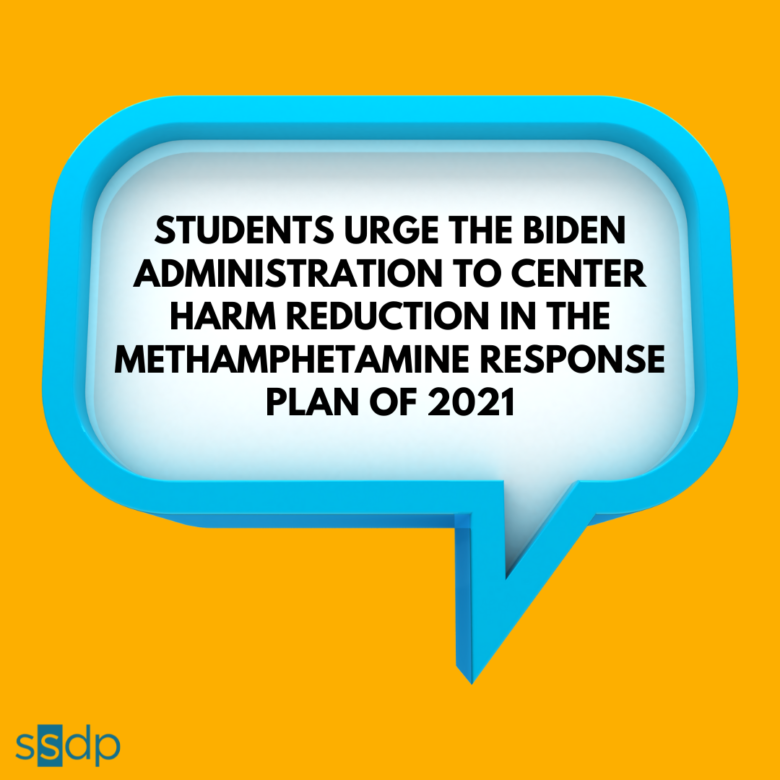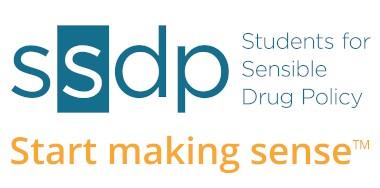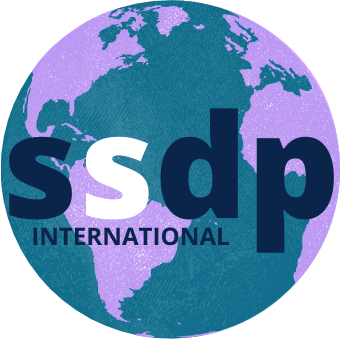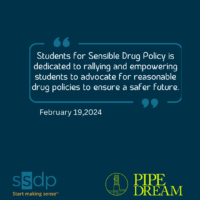Students Urge the Biden Administration to Center Harm Reduction in the Methamphetamine Response Plan of 2021

President Bident recently signed the “Methamphetamine Response Act of 2021” into effect, naming methamphetamine as an “emerging drug threat” and directing the Office of National Drug Control (ONDCP) to implement a Methamphetamine Response Plan within 90 days of the signing of the bill. While we are concerned that this law is now targeting people who use methamphetamine with outdated prohibitionist tools, we are encouraged to hear that the harm reductionists at ONDCP are tasked with implementing the Methamphetamine Response Act. Students for Sensible Drug Policy would like to partner with you to create a more effective and more just response to the challenges our community faces.
According to the U.S. Sentencing Commission, 31.3% of all reported federal cases in 2021 were “drug offenses”: the largest of any case category reported that year, and the only category to see an increase in cases from the previous year. 48% of all reported federal drug cases in 2021 involved methamphetamine, and one in 10 defendants were between the ages of 18 and 21. The War on Drugs has been a war on young people, but it doesn’t have to be this way. Young people should not have to spend their formative years behind bars in order to get the support that they need. Young people who use drugs can benefit from access to harm reduction education in public schools, access to evidence-based harm reduction services and treatment, and access to mental health care without fear of parental notification or threat of incarceration. Young people who sell drugs could additionally benefit from job placement and financial support services for themselves and their families. With appropriate resources and support, young people have a better opportunity to flourish and become engaged members of the community. We know that ONDCP has committed to enhancing evidence-based harm reduction efforts, and we urge ONDCP to enhance evidence-based harm reduction efforts for young people who use methamphetamine and young people involved in the drug trade and to explore alternatives to incarceration as part of the Methamphetamine Response Plan.
Furthermore, the most recent Sentencing Commission data shows that 74% of defendants in drug cases are black, indigenous, and people of color (BIPOC) and 61.5% of defendants in methamphetamine cases were BIPOC. When taken together with education data showing that the majority of arrests were of citizens with some college or less, it is clear that the most vulnerable communities are still being targeted disproportionately by the enforcement of these laws. We must stop locking up BIPOC communities and instead invest in harm reduction services for BIPOC communities to advance racial equity in our drug policy approaches. The Methamphetamine Response Plan can play a major role in advancing racial equity by keeping families together, investing in programs and resources to support public schools responding to these trends, and expanding access to evidence-based harm reduction and mental health support in BIPOC communities.
Students for Sensible Drug Policy is prepared to stand alongside fellow harm reductionists and ONDCP to incorporate a public health approach, considerate of the needs and protections of young people, in this year’s Methamphetamine Response Plan.






